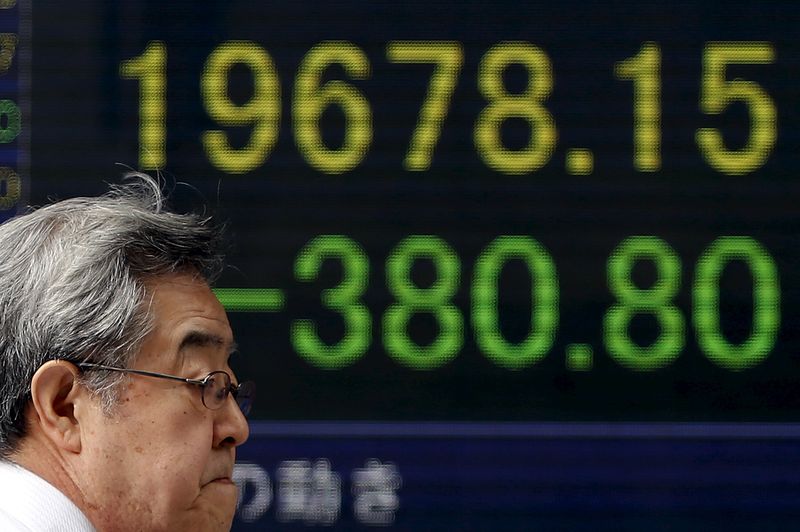By Gina Lee
Investing.com – Asia Pacific stocks were down Monday morning, as investors continue to digest the implications of Alibaba (NYSE:BABA) Group Holding Ltd.'s (HK:9988) record antitrust fine.
China’s Shanghai Composite fell 1.03% by 11:14 PM ET (3:14 AM GMT) and the Shenzhen Component fell 1.44%.
China slapped Alibaba with the CNY18 billion ($2.75 billion) fine, amounting to about 12% of Alibaba’s fiscal 2020 net income, on Saturday.
However, some investors said that the decision was already in the share price, with Alibaba’s Hong Kong shares rising 7.80%.
“Ever since the Ant IPO was canceled and with the antitrust laws in the pipeline, the market has expected that Alibaba would pay a price... I think it’s good for the share price now that the news has been delivered and it is cleared up at last,” Wealthy Securities managing director Louis Tse told Reuters.
Meanwhile, a slew of Chinese data is due out throughout the week, starting with trade data, including exports, imports and trade balance, on Tuesday and the first-quarter GDP, industrial production and fixed asset investment data on Friday.
Hong Kong’s Hang Seng Index slid 1.48%.
Japan’s Nikkei 225 was down 0.55%, South Korea’s KOSPI inched down 0.02% and in Australia, the ASX 200 was down 0.40%.
Although the global economic recovery from COVID-19 continues to pick up the pace, policymakers warned that they need to see further signs of progress ahead of withdrawing the unprecedented support measures currently in place.
The U.S. economy is at an “inflection point” with stronger growth and hiring ahead thanks to the COVID-19 vaccine rollout and powerful policy support, U.S. Federal Reserve Chairman Jerome Powell said in an interview on Sunday, where he also warned that a resurgence of COVID-19 remains the principal risk to the economy.
Powell will also speak at the Economic Club of Washington’s moderated Q&A event taking place on Wednesday.
“The Fed is going to be more concerned about the labor market,” Oxford Economics senior economist Sian Fenner told Bloomberg, but added that “definitely inflation’s not spiraling out of control.”
Inflationary risks also remain on investors’ minds as three, 10 and 30-year Treasuries go under the hammer later in the day. The benchmark 10-year yields edged higher on Monday, extending Friday’s gains after the better-than-expected U.S. producer-price index earlier that day.
In Asia-Pacific, rates on Australian 10-year debt jumped past 1.8%.
The U.S. will also release further data throughout the week, starting with the consumer price index on Tuesday, the Fed’s Beige Book on Wednesday, and retail sales as well as industrial production data on Thursday.
